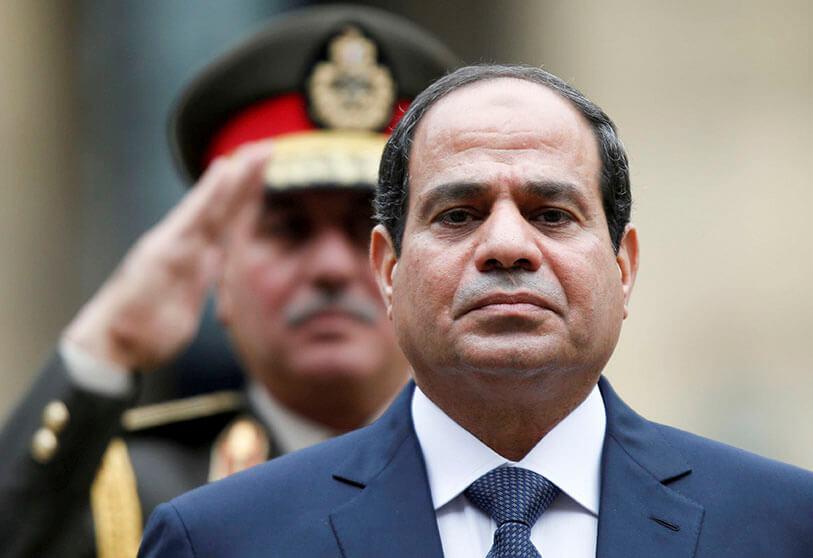Alwaght- On Monday, the Egyptian lawmakers in an important parliament session held with maximum presence authorized President Abdel Fattah el-Sisi to intervene in Libya by sending troops to neighboring country.
The session was requested by el-Sisi who is the commander-in-chief of the Egyptian armed forces and following a call by Libya eastern tribes to him to intervene militarily to counter Tripoli-based government which after dealing blows to General Khalifa Haftar is now moving eastward to seize Sirte.
The spokesman to “Operation Volcano of Rage” which is launched by the Government of National Accord (GNA) on Saturday announced that the operation to liberate Sirte and Jufra was about to be launched by the Turkish-backed GNA while earlier the Egyptian officials warned that the two Libyan cities were Cairo’s “red line.”
This means that the developments on the Libyan ground are advancing to stages decisive in the North African nation which has been in war since an uprising in 2011 toppled Muammar Gaddafi. The stages are largely tied to Egyptian decision to deploy troops. Now it remains to see what steps the Egyptian government will take after it was granted the power to take military action in Libya.
Parliament intervention permission and scenarios ahead
The important point about the type of Egypt’s actions concerning the Libyan case is that the Egyptian government has always taken stances or actions in respond to the moves taken by the internationally-recognized GNA and its ally Turkey. Turkey has been sending militia fighters from Syria to Libya and deployed heavy arms in support of the government of Prime Minister Fayez al-Sarraj.
In fact, Egypt in all of its stances seeks actions against the Turkish presence in Libya. Seeking the parliament authorization to military intervention is part of this approach by President el-Sisi. His call for the parliament session followed a request by eastern Libya tribes and an emergency meeting held by National Defense Council, while a couple of days earlier reports suggested that Turkey dispatched heavy weaponry to the Libyan city of Misrata and GNA sources said an operation to take under control the key eastern cities of Sirte and Jufra was forthcoming.
From another aspect, military action is the last resort for Egypt in dealing with the Libyan conflict. As Cairo leaders highlight this fact, Egypt involvement in other regional cases that directly influence the country’s national security and interests hold it back from a military action in Libya, especially that other key actors, like Russia, are present in Libya conflict and the Egyptians find it vital to consult them before any military intervention. The Monday phone conversation of el-Sisi with the US President Donald Trump during which the two underscored the need for ceasefire and de-escalation and the visit of the Egyptian foreign minister to Jordan amid reports that the latter is seeking to mediate between Egypt and Turkey in Libya all bear proof to the fact that military action is the last option for Cairo leaders in addressing the Libyan case.
Apparently, the parliamentary authorization to el-Sisi is essentially in response to Ankara and Tripoli statements that an operation to capture Sirte and Jufra, which are the stronghold of the parallel administration and the rebellious General Haftar and rich with oil and gas resource.
The key intention of el-Sisi behind asking for military intervention mandate is specifically to generate a bargaining chip and Cairo is yet to be fully prepared for serious military intervention. Its maximum intervention remains providing eastern Libya tribes and rebels with weapons and military intelligence.
These aids to anti-GNA forces will continue as long as Tripoli and Ankara refrain from launching their operation to take back the two crucial cities. Earlier, following a threat of military action in case of Egypt’s red line is violated, the GNA halted its advancement towards Sirte.
Still, if the two allies decide to open a front in eastern Libya towards Sirte and Jufra, the chances of Egypt’s intervention will go up and this intervention can be motivated by four drives:
1. Along with drawing its red line in Libya, the Egyptian government has moved all the way in preparation for military intervention. It has no stage to reach before it can take a military action. Actually, el-Sisi has taken Egypt to the zero hour of military action in Libya and any retreat can damage his image in the eyes of the public.
2. El-Sisi administration placed its legitimacy on the basis of security provision since the day it assumed the power in 2014. It introduced Libya the priority in the country’s security policy and thus retreat from its position can heavily harm its credibility among the Egyptians and leave el-Sisi political future face to face with risks.
3. Naturally, the government of el-Sisi cannot thaw with any Libyan government constituted of Muslim Brotherhood, an Islamist group that holds specific agenda in the whole Arab world with its key effort being assumption of power. El-Sisi cannot accept to see GNA move closer to the Egyptian borders. He thinks that this will mean Turkish permanent presence in Libya and higher chance for Muslim Brotherhood to dominate Libya future politics.
4. Egypt’s engagement in a dispute with Ethiopia over the latter’s building of a dam on the higher Nile that can reduce Egyptian share from the river’s water and Saudi and Emirati promise of help in the dam crisis if Cairo intervenes in Libya can influence el-Sisi’s calculations about Libya intervention.
All in all, despite gaining the leverage for military action, el-Sisi government is not ready for this option. At best, Cairo’s stances remain reciprocal depending on the way Tripoli and Ankara act on the ground. However, Egypt may be dragged into a military action if al-Sarraj and his ally Erdogan decide to launch their campaign to take control of Sirte and Jufra.



























